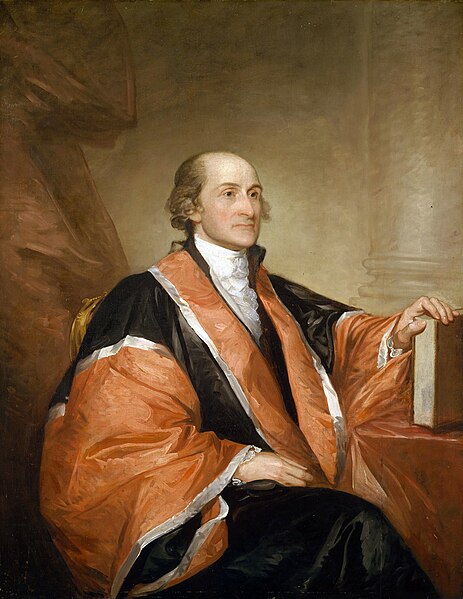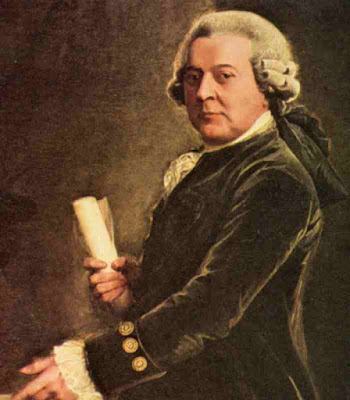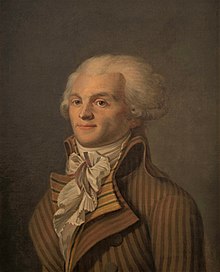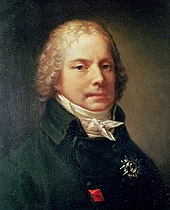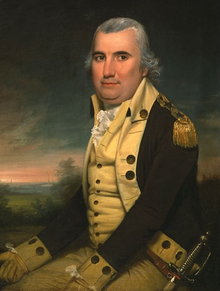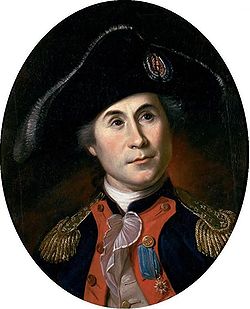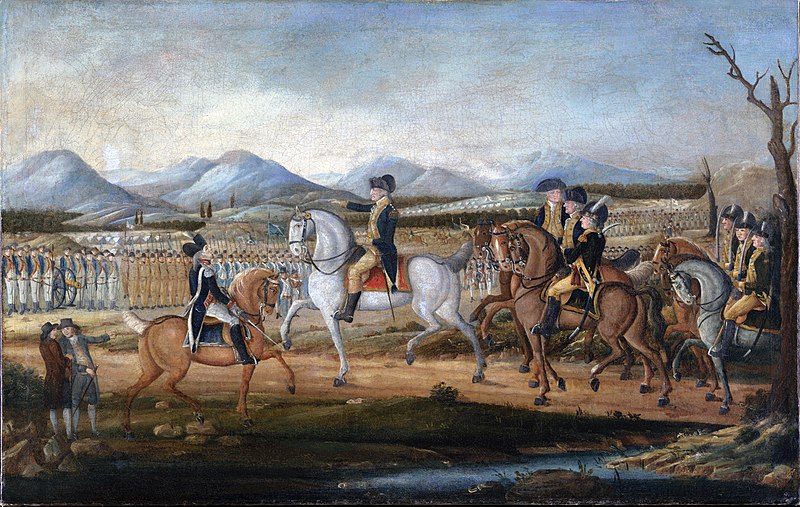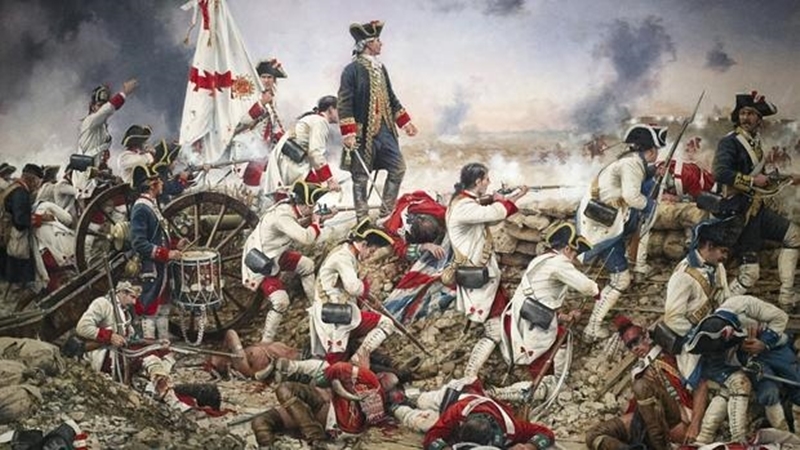"The said States hereby severally enter into a firm league of friendship with each other, for their common defense, the security of their liberties, and their mutual and general welfare, binding themselves to assist each other, against all force offered to, or attacks made upon them, or any of them, on account of religion, sovereignty, trade, or any other pretense whatever. The President of these United States in Congress Assembled, elected for four years at a time by the Members of the Congress Assembled, is to keep these Articles observed and to be chief negotiator of state relations, captain of international diplomacy, and has the right to form alliances, form trade agreements, and go to war upon consent of the Congress here Assembled on this day in the Year of Our Lord, March the First, Seventeen Hundred and Eighty-One, and all future Congresses Assembled, So Help Us God."
-Articles of Confederation and Perpetual Union
"What Madness Is This? That brother might fight brother, and father might fight son? That countless homes and families be ripped asunder all for the sake of their piece of dirt? of their political party? Why must we hate each other so?"
-Thomas Jefferson
"Gentlemen! I give you American justice! Down with these traitors who send us to die in wars of uncommon stupidity! Down with those that defrauded our democratic system! Down with those who delay our veterans' blood-wages year after year! Down with the President! And let's hang that bastard Hamilton!"
-Willard Crawford, leader of the 1801 coup that overthrew the United States government
"WHAT MADNESS IS THIS?"
REDUX: THE UNION FOREVER

Preface:
I want to thank all the wonderful commenters and readers who helped make this timeline so fun and interesting, if very dark and dystopian, to write the first time and now the second time. Here's to a fresh take on an old favorite, everyone! Expect classic characters, such as the unforgettable Chuck Oswald, Joe Steele, the Prophet Burr, and, of course, good ol' Colonel Charles Goodyear to return, plus lots of new ones too! Hang onto your blood-spattered tricorns and start bowing to your radioactive statues of Billy Graham, because here we go!
WHERE THE MADNESS BEGAN:
HARD TIMES IN THE LIVINGSTON SUGAR HOUSE
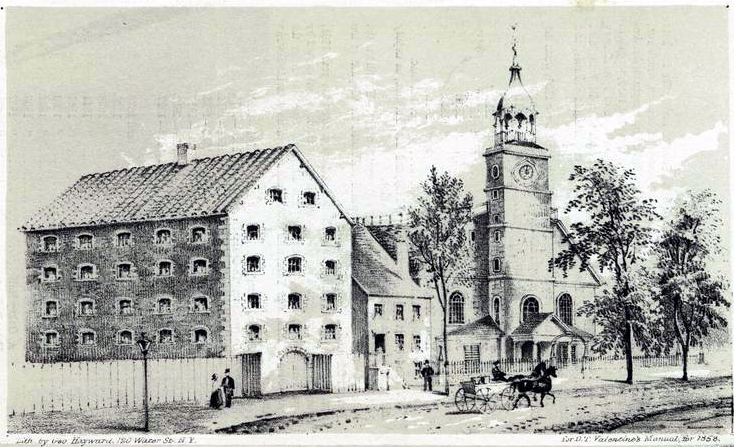
The guard--a gaunt unshaven chap wearing a brown coat of the minutemen volunteers and a worn black shako hat--shoved Hamilton to the floor. "You bloody tropical bastard! This is on you.!" He pointed a crooked, calloused finger at the Vice President while mocking his Caribbean birthplace. "You'll hang for your crimes, you trickster. This whole bloody country wants your guts on a fork. Enjoy your vacation here, damn-your-eyes."
Adams stood tall and proud, even in chains. His periwig was a mess, however, and his navy blue breeches had gravy stains from the luncheon he had been arrested at. "You absolute rapscallion, you! I shall have you keelhauled for accosting us like this! This is MY country! Do you know how much I sacrificed?!"
The guard looked at him straight in the eyes. Slowly, the guard replied, "Yes, I know how much you sacrificed. Your soul, your honor as a gentleman, and whatever goodwill the American people once had for you. I lost my right foot at Valley Forge, and not for you to just destroy everything. Rot in Hell, traitor!" With that, the lanky minuteman closed the heavy iron cell door and locked it behind him. His jackboots, one filled with a wooden prosthetic, clunked away down the creaky floorboards of the Sugar House.
It had all spiraled out of control. From the moment George Washington stepped down as president, things had gone down a crazy, looping pit of self-destruction for the infant nation. The fact that President Washington was able to masterfully keep the states united while following the Articles of Confederation and Perpetual Union (despite his own supreme hatred of said document) was emblematic of the man's personal strength of character, mental fortitude, and extremely capable political skills. Other Presidents of the United States in Congress Assembled had preceded him, but none had been given so much power to consolidate the nation's strength, or really much power to speak of at all. Washington had gotten all of the Thirteen Colonies to agree with the Articles and had served two terms, even keeping wild cards Maryland and Rhode Island in the fold of the faithful. When he stepped down after completing his second four-year term, he was visibly aged and losing his vision. He claimed that, while he served in the name of the Articles, they simply were a poor excuse for something such a large government should operate on. He also claimed that, "The States will walk all over future presidents. I pity the men who get my position. God bless and keep them." The Good General also worried that future presidents might find a way to abuse their power under pretense of not having enough power granted to them, which was one reason why he stepped down after his second term, hoping to set an example to those who would follow.
The portly man from Braintree, MA, who was eager to get into Washington's seat of power was none other than one of the very men whose political maneuvering had prevented the adoption of a document stronger than the Articles: John Adams. He had very little in common with Washington when he served as his vice president; another of Washington's ideas was to have presidents and vice presidents be from opposing parties or ideologies. Adams, however, wasn't about to pick Thomas Jefferson, even though he was the writer of the Declaration of Independence (which was a much more popular and purposeful document than the Articles ever were). Many were avidly campaigning for Jefferson to get the job, but Adams would have none of it. The two men simply did not get along. In fact, they hated each other. Washington was accommodating and listened to what Adams had to say. Jefferson, to Adams, was a self-righteous Anti-Federalist and had come close to screaming in Adams' face when the Federalists blocked the request from Washington for a new "Constitution of the States." Adams and his men knew that if the Articles went down, so would they, and their dreams for a strong centralized government later on down the road would be over, and a more free, more liberal government would be formed.
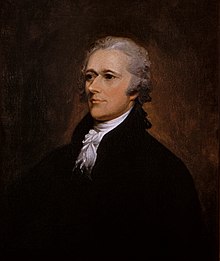
Alexander Hamilton
Fraunces Tavern
The idea was to allow the Jeffersonians to go ahead and amend the articles allowing for a popular vote on who would be the next president. Federalists would then stuff the ballots for Adams and Hamilton to keep "those lunatics Jefferson and Madison" from attaining power. After all, there had never been popular elections before, so no one would notice a few "kinks in the system." Adams and a small group of elite Federalists, including Hamilton, Thomas Cotesworth Pinckney, and Rufus King, gathered in Fraunces Tavern, in the adopted Federalist capital of New York City, for a mini-convention, very much behind closed doors and in the shadows. The group referred to themselves as "The Friends of the Union." In secret, the men discussed their "ingenious" plans over some ale, and laid out the plot. Hamilton took charge, with Adams being reluctant at first, being somewhat honest even if he was power-hungry. A few others resisted as well. Hamilton eventually browbeat them into accepting it "in the name of the public good." The Federalists were what America needed, he proclaimed, and the Anti-Federalists would bring about the "promiscuity of the States." An ironic line, considering Hamilton himself was the bastard son of two loose persons in the Caribbean colonies. More plans were drawn up to prevent any more Federalists than necessary from learning of the plot, only letting enough know to carry it out.
Strong, centralized government was the motto among the Friends of the Union, even though they knew it would not be popular among the people to phrase it that way. So, they promised whatever the people wanted, knowing it wouldn't matter in the end. Benjamin Franklin finished assisting the Congress in drafting the amendment that enabled elections and then, loosing his balance and falling down the steps in front of Independence Hall, died two days later. James Madison delivered his eulogy and published The Dear Old Man, a short book on his dealings with and admiration for Franklin, and dedicated it to "Benjamin Franklin, the American Prometheus."
Adams liked the Old Man as well as anyone else, but Franklin had sided with the independents like Washington, and more-than-not drifted toward the Anti-Federalists. Plus, the last thing Adams and Hamilton needed was for Franklin to use his genius to figure out the ballot-stuffing and give some wise quip, bringing the entire Federalist Party into the gutter. Yes, Franklin's death was quite convenient for them, no matter how sad.
When it came time for the election, only white males over the age of twenty were allowed to vote. When the votes were being counted at their respective state capitols, the Federalists went to work. Stuffing, erasing, re-writing, and voting multiple times. It was a dark day of cheating, bribery, and outright corruption on an incredible scale unseen before since the days of Rome. The cheating was accompanied by an unimaginable amount of anti-Jeffersonian propaganda, accusing the Declaration of Independence author of outright atheism and of fornication with his female slaves. Adams and Hamilton knew, though, that if too much of the vote percentage went for them, people would become suspicious. So, they had dispatched orders to make sure it wasn't a ridiculous victory. They thought 60, 65, or 70 percent of the vote would seem believable but strong. Yes, around that number would provide a sham mandate for Federalist programs and policies. Thus, three weeks later, when all was said and done, John Adams became the Seventeenth President of the United States in Congress Assembled, and Hamilton became the Vice President of the same.
List of Presidents of the United States in Congress Assembled:
- Peyton Randolph (September 5, 1774 - October 22, 1774) Virginia
- Henry Middleton (October 22, 1774 - October 26, 1774) S. Carolina
- Peyton Randolph (May 10, 1775 - May 24, 1775) Virginia
- John Hancock (May 24, 1775 - October 29, 1777) Mass.
- Henry Laurens (November 1, 1777 - December 9, 1778) S. Carolina
- John Jay (December 10, 1778 - September 28, 1779) New York
- Samuel Huntington (September 28, 1779 - July 10, 1781) Connecticut
- Thomas McKean (July 10, 1781 - November 5, 1781) Delaware
- John Hanson (November 5, 1781 - November 4, 1782) Maryland
- Elias Boudinot (November 4, 1782 - November 3, 1783) New Jersey
- Thomas Mifflin (November 3, 1783 - June 3, 1784) Pennsylvania
- Richard Henry Lee (November 30, 1784 - November 4, 1785) Virginia
- John Hancock (November 23, 1785 - June 5, 1786) Massachusetts
- Nathaniel Gorham (June 6, 1786 - November 3, 1786) Massachusetts
- Arthur St. Claire (February 2, 1787 - November 4, 1787) Pennsylvania
- Cyrus Griffin (January 22, 1788 - November 15, 1788) Virginia
- New Amendment to Articles allows four year terms with no limit on how many times someone may run
- George Washington (April 30, 1789 - March 4, 1797) Virginia
- New Amendment to Articles allows election by popular vote
- John Adams (March 4, 1797 - May 18, 1801) Massachusetts
With Adams and Hamilton in the Presidential Mansion, the Federalists entered their own metaphorical high castle on a hill and started, after a few months, to drift farther and farther away from political reality. Before long, every governing body in the country was stacked with Federalists and these ill-gotten gains had the Federalists running victory laps all around Philadelphia, the national capital. And that leads to one of the first acts the Federalist government ordered: that the national capital and capitol be moved to New York City, the heart of the Federalist Party.
But now, back to where our story began. Hamilton and Adams were sweating it out in the Livingston Sugar House, lying on straw mats and listening to the sounds of rats scurry through the walls. It was over for their time in power. Their ultimate fate would be revealed soon, and the future of North America--and even all of human civilization--would be set in motion....
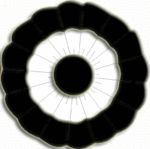
Emblem of the Federalist Party
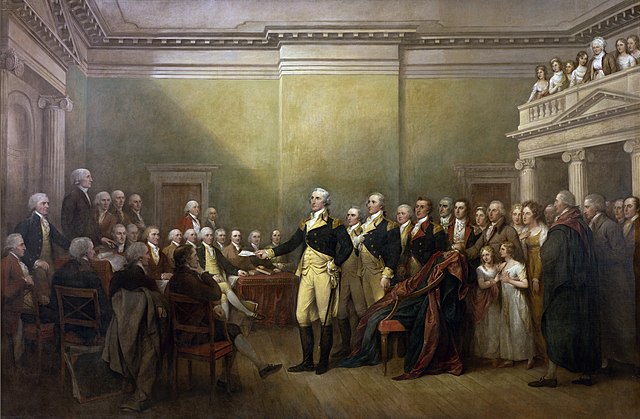
George Washington announces he will not seek a third term in this early 19th century painting

